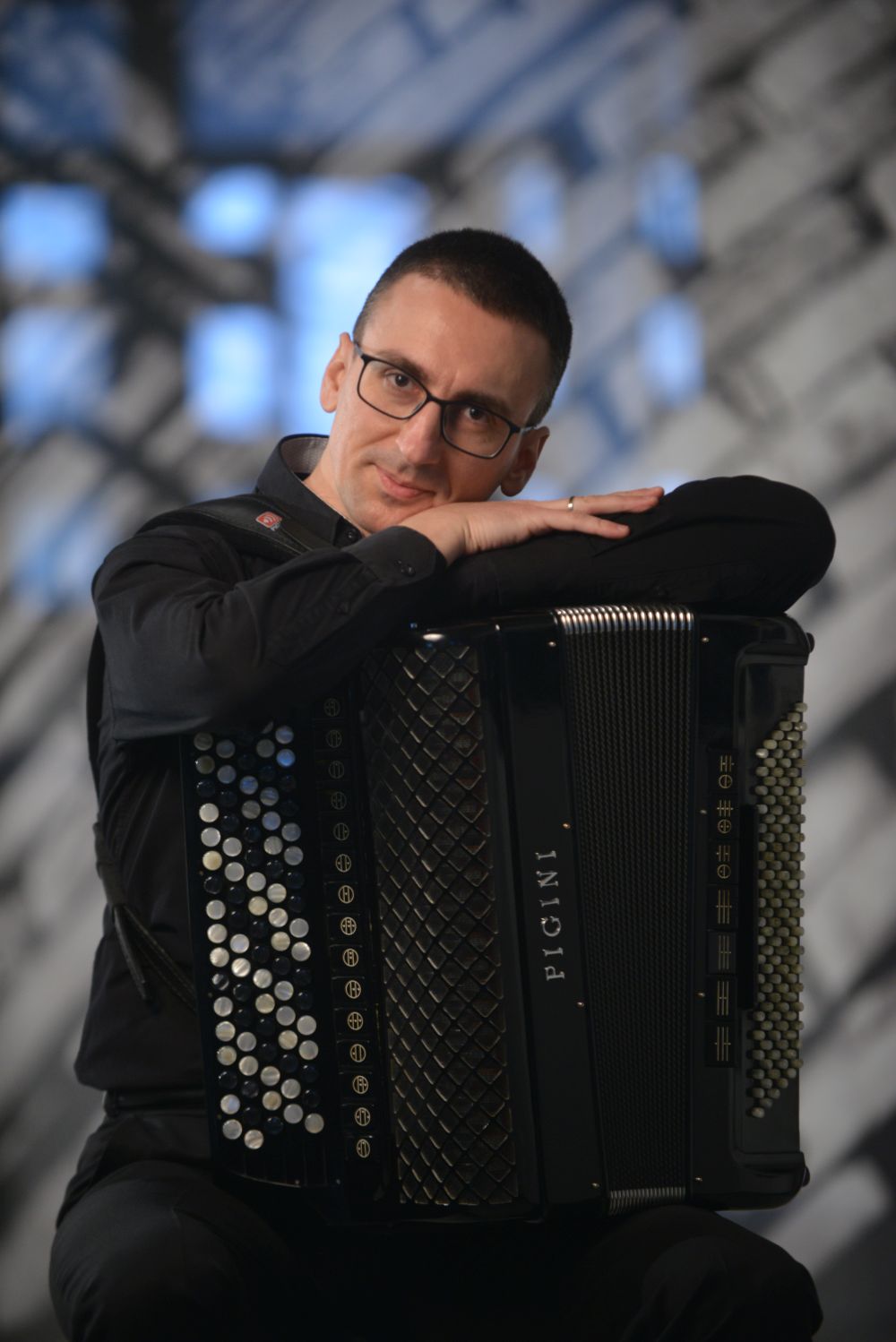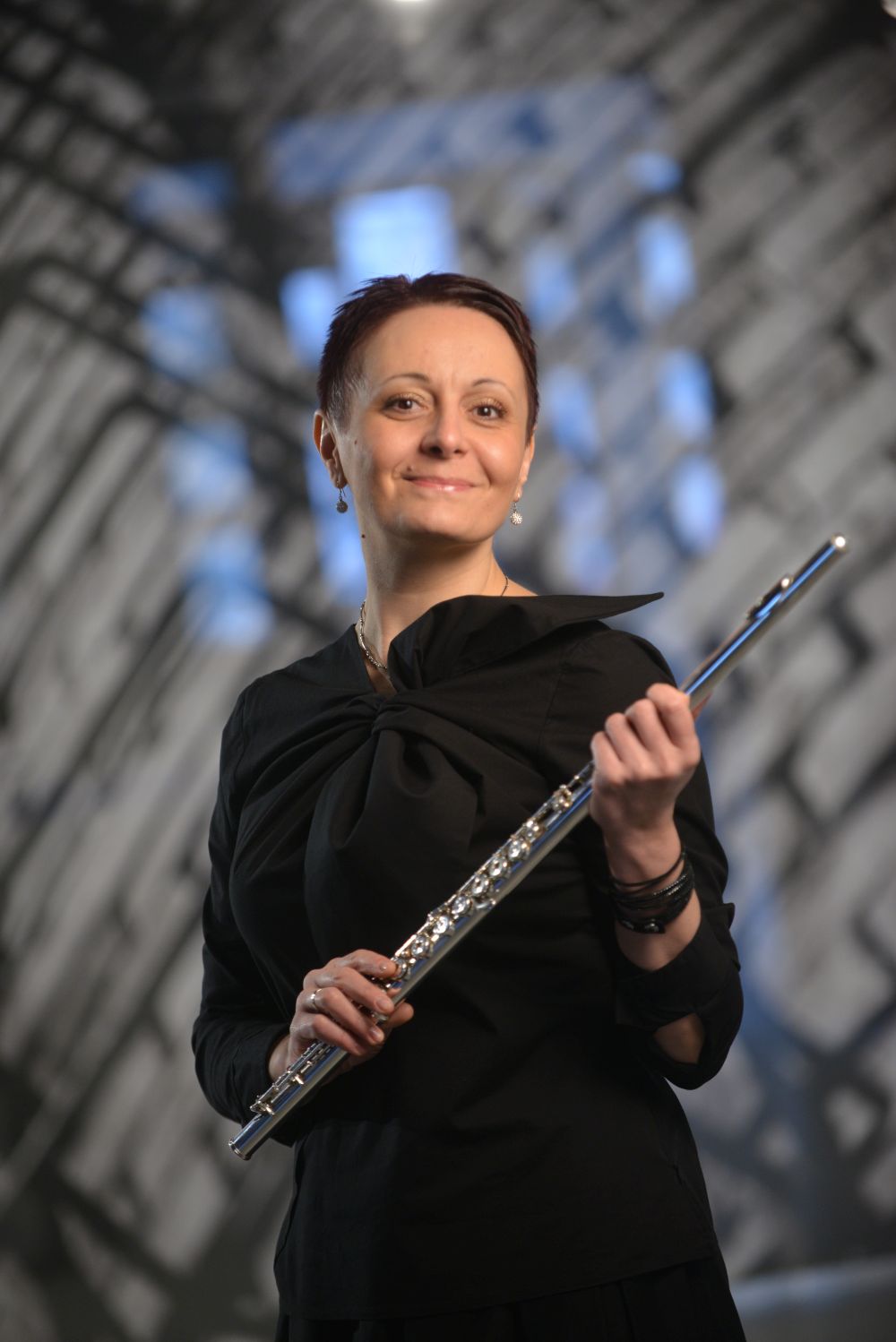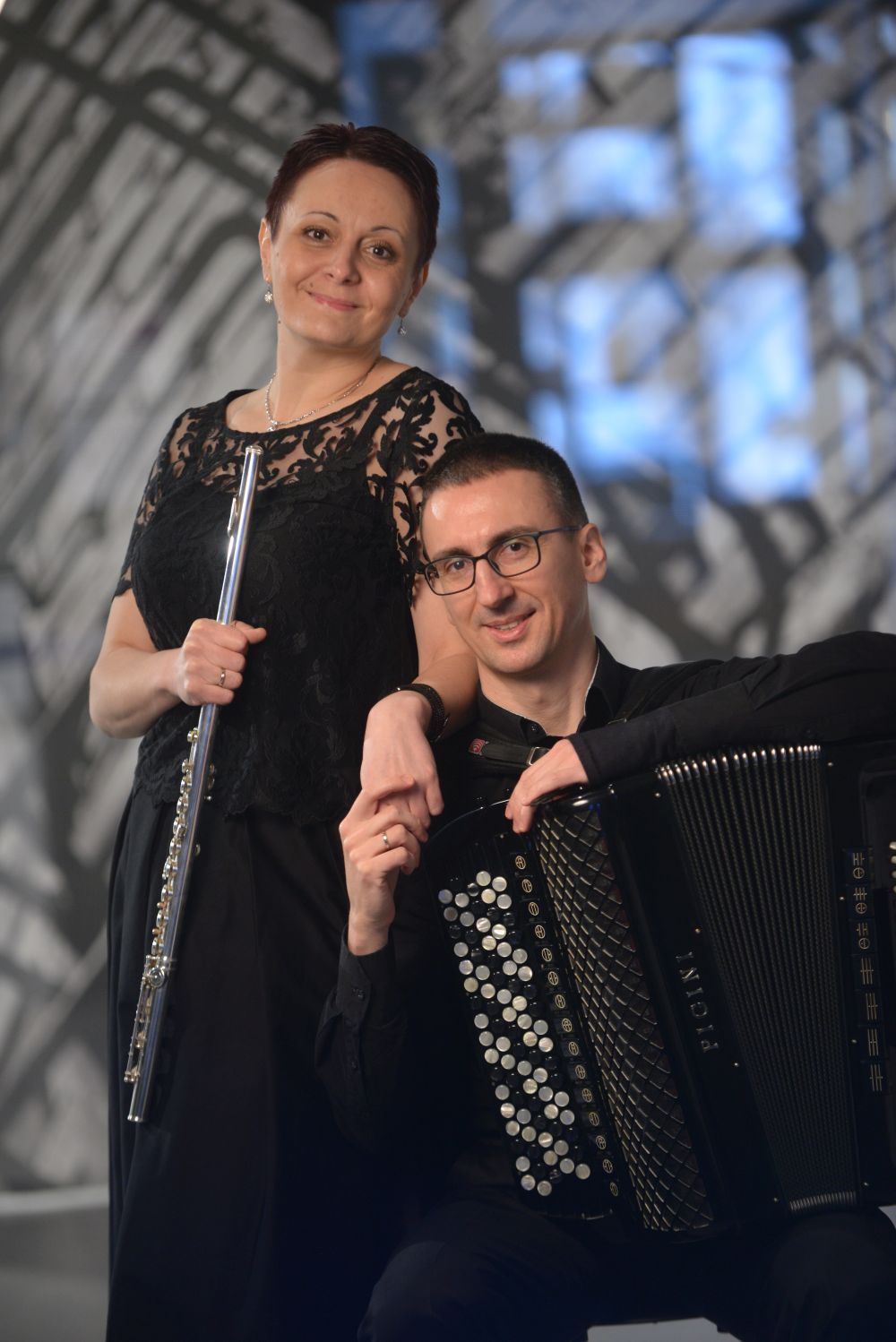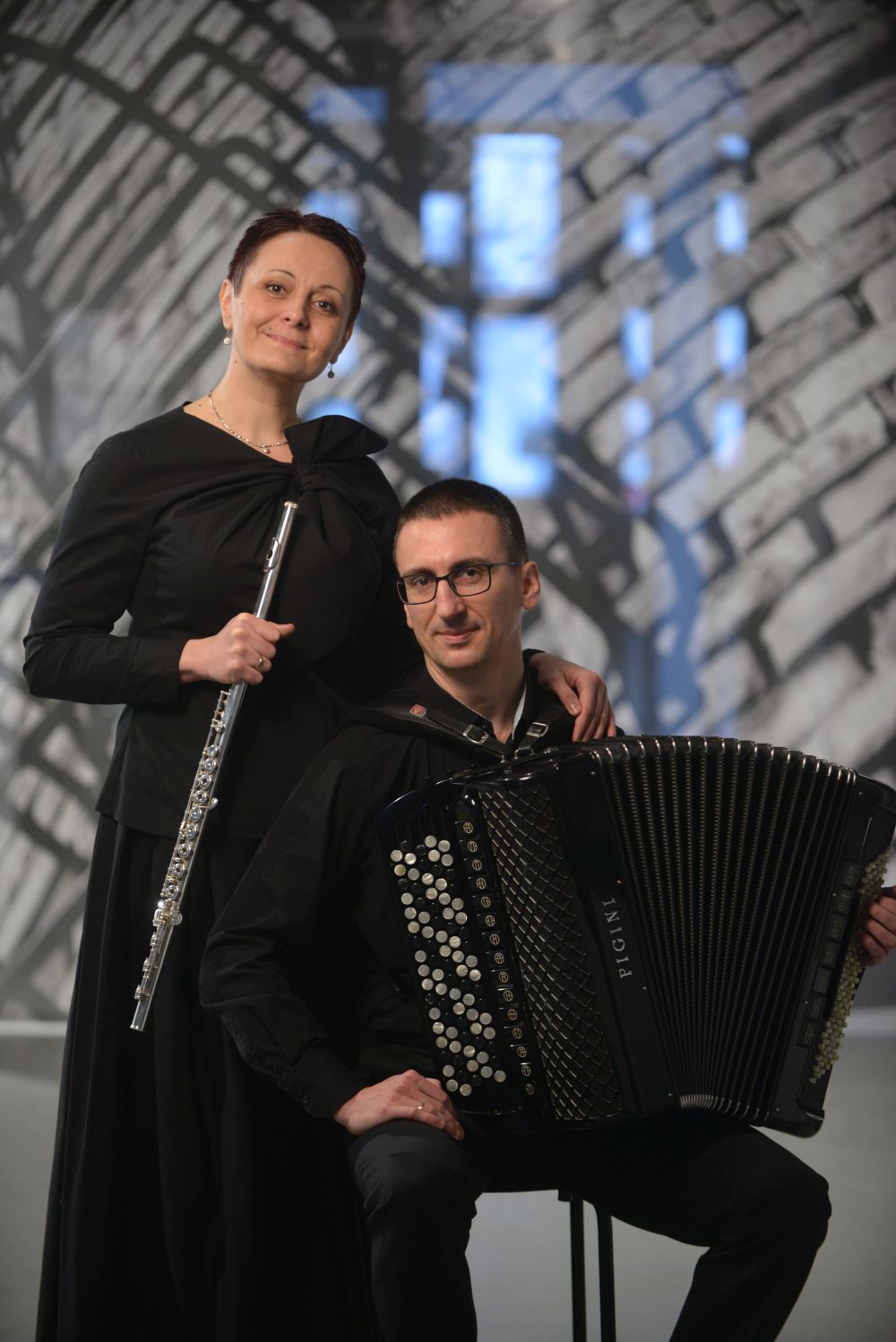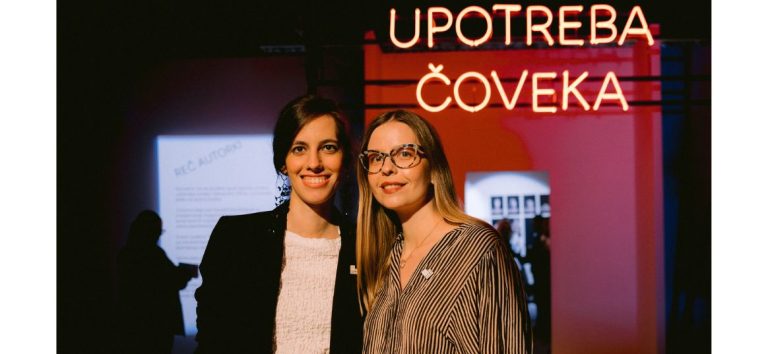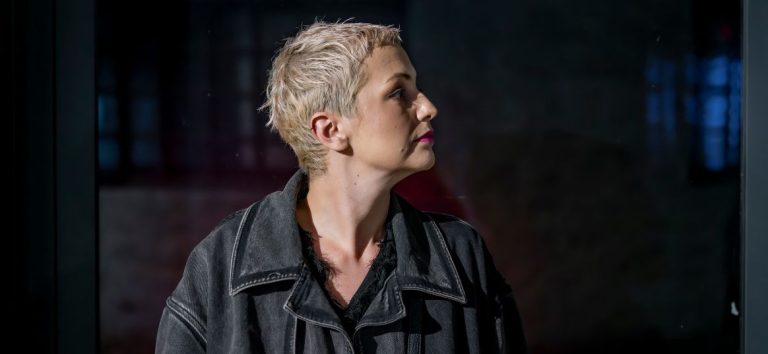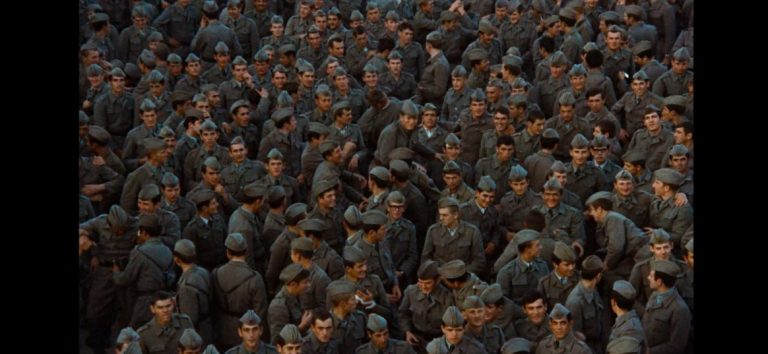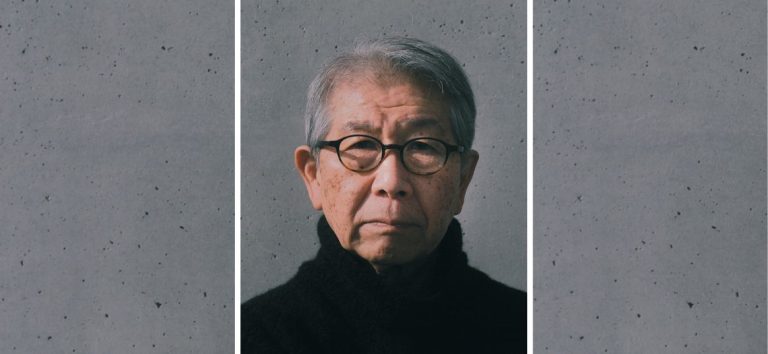Marijana Josipović Mirković and Dragan Mirković, who form the Duo Unico, still dance the tango that brought them together as students of the ‘Isidor Bajić’ music school, in a year in which they are celebrating two decades of joint work.
Their tango combines modern and traditional, which makes them unique in Novi Sad and beyond due to the combination of instruments – flute and accordion. They marked the jubilee by recording a CD in the Pavle Beljanski Memorial Collection and two videos in Svilara and Egység. Marijana and Dragan, teachers at the Music School, begin their story with the fact that 20 years together passed quickly and that when you live music and love your job, time flies.
– The previous two decades were filled primarily with numerous performances and concerts. The first years of joint work were marked by participation in local and international competitions and numerous awards that we won. One of the most important for us is certainly the Award for the best interpretation of a contemporary piece of music, which was given to us at the competition in Klingenthal, Germany. Today, when our priorities are different, what thrills us the most are the concerts and recordings of the works we perform. For that reason, we wished to mark our jubilee by recording a CD and promoting it in concerts. Our idea was supported by the Provincial Secretariat for Culture, Public Information and Relations with Religious Communities and the City Administration for Culture of the City of Novi Sad.
Joint work has actually grown love between you, what is it like to work with a partner? How do you resolve disagreements at work and do you make compromises?
Dragan: When we remember our beginnings, then we always say that one tango – Meditango by Astor Piazzolla brought us together as students of the ‘Isidor Bajić’ music school. It happened by accident, because like all young people at that stage of musical development, we were extremely curious, eager to cooperate with fellow instrumentalists and take risks. To our happiness and great satisfaction, the idea of cooperation between the two classmates at the time was supported by Aleksandar Malenica, accordion and chamber music professor, and Milana Baračkov Malenica, accordion professor. They have followed and supported us for many years and we are very grateful for that. We dance our tango even today, in love, life and music. Even though we grew up together, disagreements happen. Perhaps it is more accurate to call them challenges in cooperation. In order to overcome them, a lot of progress is made, a lot of thinking, becoming better, and compromises must be made, especially when it comes to cooperation of artists, because individuality is expressed in the nature of all of us. Anyway, it is a great privilege to work with someone with whom you can communicate with your eyes and heart.
The combination of your instruments, flute and accordion, is a rare example in the world of music, and not only on local stage. What are the advantages of this interesting blend? Does it lead to a wider musical spectrum and greater opportunities for experimentation?
Marijana: The idea of the name of our duo (UNICO – unique, the only one) came from the fact that these two instruments can rarely be heard together. The unusual combination of one traditional and one contemporary instrument enables a wide selection of repertoire, from baroque music, through classical compositions to contemporary music, to works of popular music genres. The works written for this duo are mostly works by contemporary authors and represent an indispensable part of our repertoire. Nineta Avramović Lončar, composer and professor of counterpoint at the ‘Isidor Bajić’ music school, dedicated the Songs without Words to us, which we always gladly and with great pleasure perform whenever we have the opportunity. For many compositions that are on our repertoire, arrangements are made by Dragan. The diversity of the repertoire certainly allows us to participate in various cultural events.
You are both teachers at the music school, and you were both students of the ‘Isidor Bajić’ music school. Is there a difference in teaching when you were students and today? What is important for you as teachers to bring closer to children?
Dragan: Each time has its own specifics and features. It certainly differs in many ways from the time when we were students. Many things are available to children today; information is within easy reach, while we were hungry for knowledge. Sometimes it seems to us that this kind of ‘hunger’ children lack today. We have a great responsibility as educators to select this information and motivate children, which sometimes isn’t easy. New technologies have certainly brought us many benefits, but in dealing with music as a craft, some things cannot change much. Here, we primarily mean persistence, perseverance, not giving up when something is not working right away, the development of self-confidence, great patience, love and commitment, basically everything that’s important in life. Development of the above mentioned is our guiding light, but above all, we want our students to be good people, and we want playing instruments and music to strengthen them. The knowledge acquired in music schools is a pencil in writing the pages of their lives, regardless of whether they will be professional musicians or not.
What are the young musical talents like and is there enough room for them on the local scene?
Marijana: There have always been gifted children. Many factors influence how they will develop. In addition to the children themselves, a quality teacher, parental support and the environment are extremely important. Dealing with art and culture in our country is quite difficult, but those who truly love it find a way, no matter how thorny it is. Promoting art, culture, values, beauty in general, is never too much and there should be much more space for that.
You marked the first 20 years by recording performances in Svilara and Egység, since holding a concert, unfortunately, was not possible due to the pandemic. How do you see cultural stations as new cultural spaces in the city? How important are they for both performers and audience?
Dragan: All the material that we prepared and recorded with the aim of marking our jubilee (called Tango for Two), which will be on CD, was made at several locations in the city. The audio material was recorded in the beautiful space of the Pavle Beljanski Memorial Collection, to which we are both very attached, because we held our first all-night concert there, organised by the Music Youth of Novi Sad as part of the Youth Dance Floor concert series. Two videos were recorded in Svilara and Egység. We would certainly use this opportunity to thank from the bottom of our hearts all the wonderful people, team members of these institutions, for their wonderful cooperation and great support in the implementation of our project. The existence of cultural stations and their accessibility to all of us who deal with art is of immense importance. Each cultural station is with its authenticity, appearance of the space itself, acoustics, content, each is a story for itself, just like the projects that we implement and design. Therefore, we have new, different, more diverse possibilities for implementation. Moreover, from the point of view of the audience, the existence of cultural stations is a real refreshment.
Speaking of space, Novi Sad got the first City Concert Hall, next to which will be new buildings of the Music and Ballet School. How do you see it, as you actually have different perspectives – from the point of view of a teacher and from the point of view of a performer, and finally the audience?
Marijana: The City Concert Hall is a space that Novi Sad has been missing for a long time and that we all eagerly awaited. The significance of its existence is certainly greater because it is located within the new Music and Ballet School. The existence of such a facility will certainly provide students with the opportunity to show their performing skills in an inspiring space, open the door to great local and foreign names of music and cultural scene in general, and offer the audience the opportunity to enjoy cultural events and concerts in a beautiful space created exclusively for that purpose.
What musical events, but also other cultural events in Novi Sad, you never miss?
Dragan: Novi Sad is a city with a lot of cultural events such as festivals, manifestations, concerts, etc. Of all of them, we might single out NOMUS, which brings joy for us musicians in the best possible way every year. We truly enjoy its contents and look forward to it every year.
Your everyday life is made of music. Which other arts or sports, hobbies, do you enjoy?
Marijana: Every segment of our lives is interwoven with music and there is a wide range of activities that we do when it comes to it. In addition to playing, working with children in the music school, I am also the founder of the Orpheus Music Centre in Novi Sad, within which, in addition to numerous music workshops, I have been leading the children’s choir of the same name for 12 years. Boundless love for my vocation and kids were the reason for the creation of my author’s compositions for children (Sarah Kay, We Are All the Same, The Hymn of Orpheus, When the Heart Is Full of Love and The Lullaby for Mommy’s Darling). I am the founder of FLART (cultural – educational events for flautists) and a lecturer within the winter and summer flute schools which are held in Sremski Karlovci. I am also an advisor-external associate for music culture in the School Administration of Novi Sad. Children have always been an eternal inspiration for my work and I can freely say that I learn the most from them. And my other, free time activities are inspired by them. In my free time, I make educational ‘quiet’ books for children, as well as jewelry from various materials within Maja’s unique corner.
Dragan arranges for chamber ensembles in which he performs, but also for other musical ensembles. In this field, the most significant is the collaboration with the Preßburger Klezmer Band from Bratislava (Slovakia), with which he has collaborated for many years as an arranger, and as a guest artist on their album Baladen. He is the author of a collection of compositions for accordion called Popular Melodies of Artistic Music, published by Note from Knjaževac, as well as the book Prstored for Button Accordion – Be-grif and Ce-grif System.
What kind of music do you listen to privately? Are there any musicians from Novi Sad on your list?
Dragan: We both share the opinion that exclusivity, both in life and in music, is not good. Therefore, our list includes music of various genres. Our motto, when it comes to listening to music, is: ‘Everything that evokes beautiful emotions and inspires us is worth our attention.’ There are many performers on that list.
Razgovarala: Milana Milovanov
Foto: Privatna arhiva

